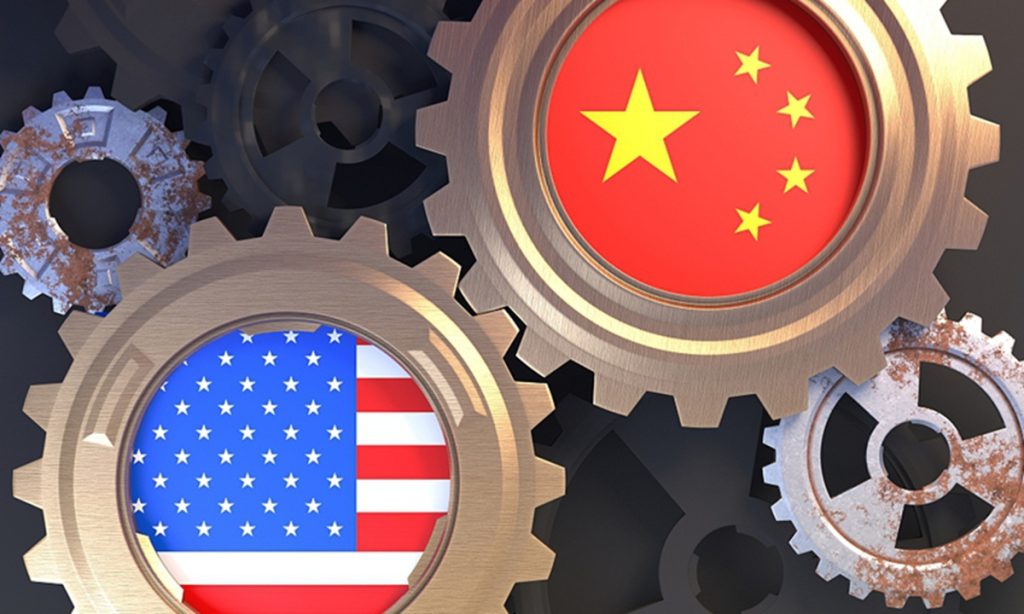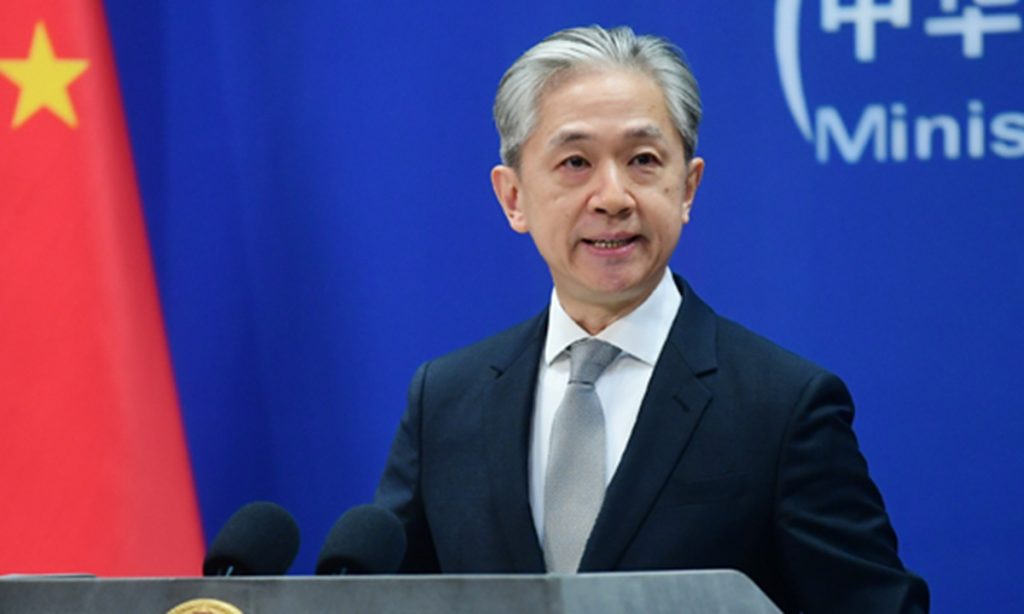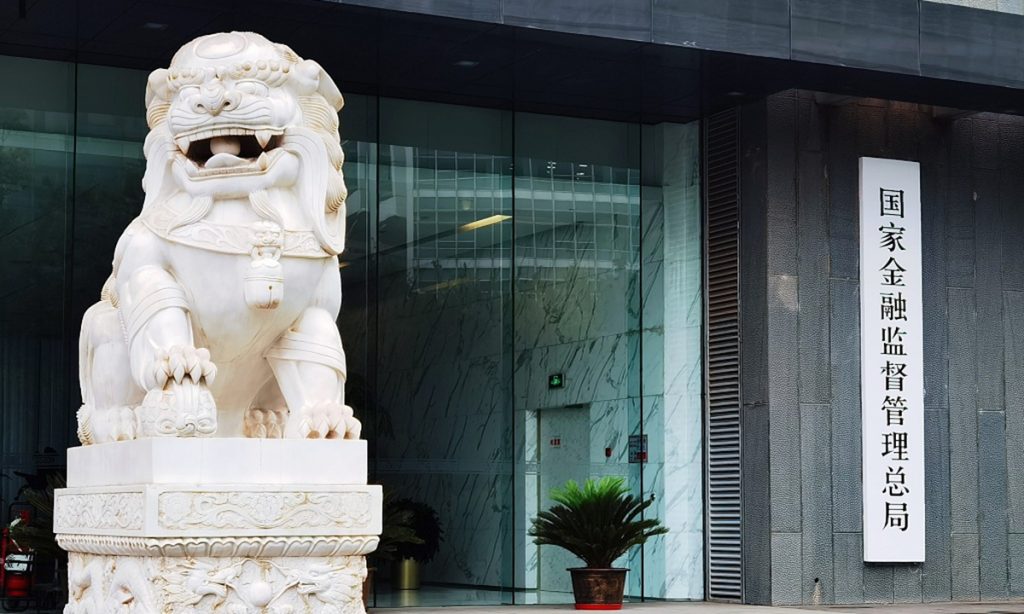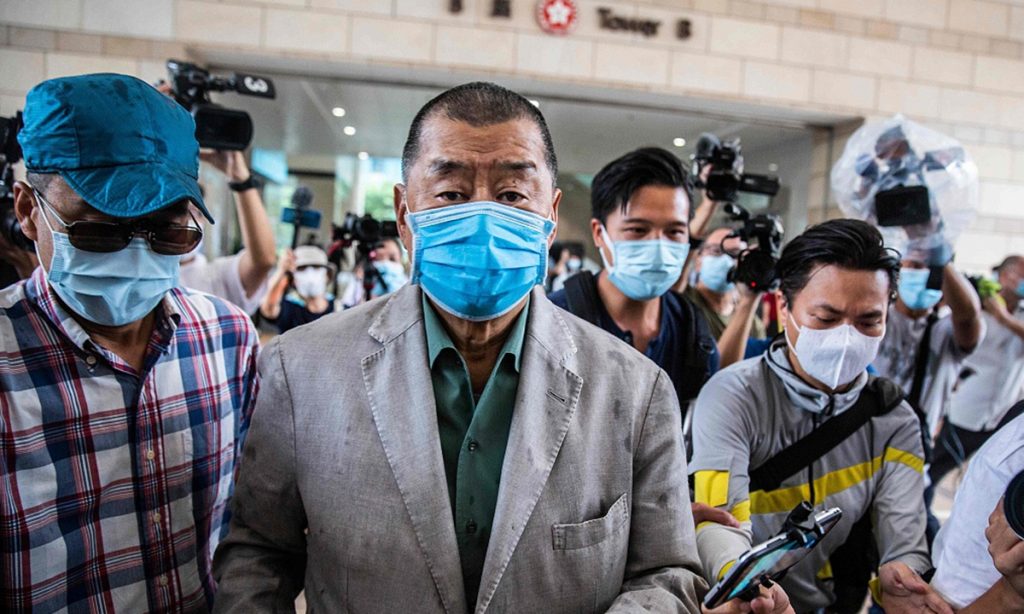China steps up exchange with US, urges 'caution on core question'

China and the US have recently engaged in a series of interactions across various levels, including inter-party and military exchanges. This extensive communication between the world's two largest economies signifies China's genuine efforts to stabilize relations, especially during a year when bilateral ties are expected to face challenges.
Experts pointed out that through these interactions, the Chinese side also expressed the necessity to the US to maintain a consistent and stable China policy during US presidential election year; as US inconsistent policy will not only harm the bilateral relationship but will also impact the whole world.
Chinese officials have also strongly cautioned the US against interfering in the Taiwan question during the exchanges, said the experts. It is important for the US to understand China's strong message against colluding with Taiwan secessionists, particularly in the lead-up to Taiwan's regional leader election. If these secessionist forces push their agenda too far, they will face harsh measures from Chinese mainland, and the US will also be put in dilemma, the experts said.
On Tuesday, Xie Feng, Chinese Ambassador to the US, delivered a speech at the Carter Center Forum commemorating the 45th anniversary of the establishment of China-US diplomatic relations.
Xie said China has recently taken a series of positive measures to further open up and facilitate China-US exchanges and cooperation. "We have authorized Mastercard NUCC to conduct bank card clearing operations in China, and approved Broadcom's acquisition of VMware. All Boeing 737 MAX aircraft in China are back in service."
The ambassador noted that it is hoped that the US side will also take real actions in the same spirit to address China's concerns. It is important to start with small steps which can go a long way, pursue reciprocity and mutual benefit, both give and take, fully utilize the restored and new mechanisms in foreign policy, economy, finance, commerce, agriculture and other fields, expand the list of cooperation and shorten the negative list, and solve rather than create problems.
China's Ministry of National Defense announced on Wednesday that the 17th China-US Defense Policy Coordination Talks were held in Washington DC from January 8th to 9th. The meeting was co-chaired by deputy chief of the Office for International Military Cooperation of China's Central Military Commission and deputy assistant secretary of defense of the US Department of Defense.
The Chinese side expressed that China is willing to develop a sound and stable military-to-military relationship with the US side on the basis of equality and respect and work together to follow through the important consensus on mil-mil engagement reached by the two heads of state during their meeting in San Francisco, according to a read out issued by the ministry.
Liu Jianchao, head of the International Department of the Communist Party of China (CPC) Central Committee, also visited the US this week.
In a speech delivered at an event hosted by the Council on Foreign Relations in the US on Tuesday, Liu said China does not seek to change the current international order, instead, China is one of the builders of the existing world order and benefits from it. As the world enters a period of turbulence and change, people from all countries hope that China and the US can take the lead in solving more global issues, he noted.
The recent slew of interactions between the two countries shows that China is willing to enhance communication with the US at various levels and also demonstrates China's sincerity in trying to stabilize bilateral relations, Lü Xiang, a research fellow at the Chinese Academy of Social Sciences, told the Global Times. China also hopes these exchanges can help prevent negative factors within the US from becoming overwhelming forces before the upcoming US presidential election, when anti-China rhetoric will be amplified, he added.
Liu Weidong, a research fellow at the Institute of American Studies at the Chinese Academy of Social Sciences, said that China has made significant efforts to enhance bilateral relations, the onus is on the US for further progress. The incumbent US President, Joe Biden, is acutely aware that strained China-US relations could will not benefit him in the upcoming election. However, he also faces pressure to avoid appearing too soft on China, as he fears potential attacks from Republican candidates. Liu believed that the China-US relationship may encounter significant turbulence this year.
According to experts, China aims to use recent interactions with the US as a reminder for Washington to maintain continuity and stability as a superpower. They argue that inconsistent policies of the US not only affect China-US relations but also affect the entire world.
While it may be unrealistic to expect China and the US to agree on everything, it does not imply that the two nations are in an antagonistic state. Experts argue that beyond the polarizing extremes, there exists ample room for both countries to coexist. The focus now lies in finding a peaceful way to co-exist for China and the US in this space.
Sensitive question
Both Xie and Liu Jianchao sent clear message to the US side over the seriousness of the Taiwan question.
Xie said that the Taiwan question is the most important and sensitive question in China-US relations. When it comes to "Taiwan independence" separatists who betray their motherland and refuse to identify themselves as Chinese, the Chinese government simply has no room for compromise, Xie said.
The US side should abide by the one-China principle and the three China-US joint communiqués with practical actions, and implement the statements of US leaders not supporting "Taiwan independence" and not using the Taiwan question as a tool to contain China.
Liu Jianchao said that China takes the US' commitments of not supporting "Taiwan independence" seriously and hopes that the US will abide by these commitments.
During the just concluded China-US Defense Policy Coordination Talks, the Chinese side emphasized that China will not make any concession or compromise on the Taiwan question and demanded that the US side abide by the one-China principle, honor relevant commitments, stop arming Taiwan, and not support Taiwan independence.
Washington however has not shunned from sending wrong signals to Taiwan secessionists before the Taiwan regional leader election this weekend. In the latest move, island of Taiwan's representative in the US Alexander Yui met with US House of Representatives Speaker Mike Johnson on Tuesday.
China firmly opposes the US having any form of official contact with the Taiwan region, Mao Ning, spokesperson of China's Ministry of Foreign Affairs, said at a Wednesday conference. She noted that the US should prudently and properly handle Taiwan-related issues, stop official contact with the Taiwan region, stop sending wrong signals to "Taiwan independence" separatist forces and refrain from interfering in elections in the Taiwan region in any form.
Experts have stated that the outcome of the Taiwan regional leader election won't affect the reunification process. Instead, China's strong message sent during recent interactions with the US is rather a reminder for Washington not to collude with Taiwan secessionists. "If these secessionists were to win the election and push for Taiwan independence, it could potentially lead to ultimate measures from the Chinese mainland. This situation would also put the US in an awkward position, as that would mean an inevitable conflict between China and the US," according to Liu Weidong.







